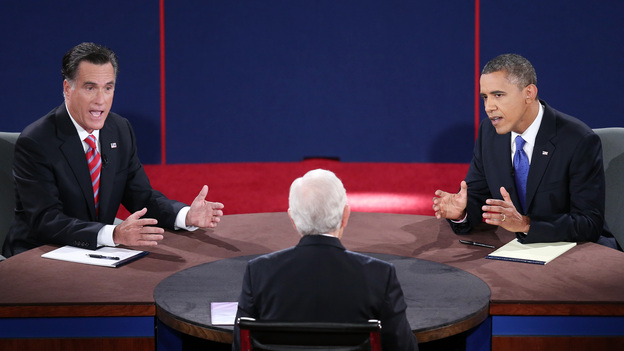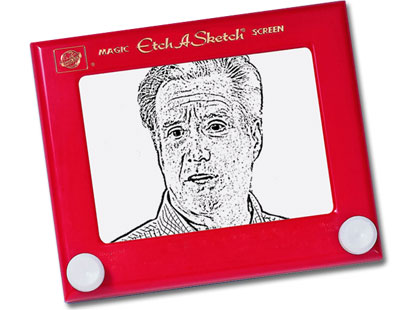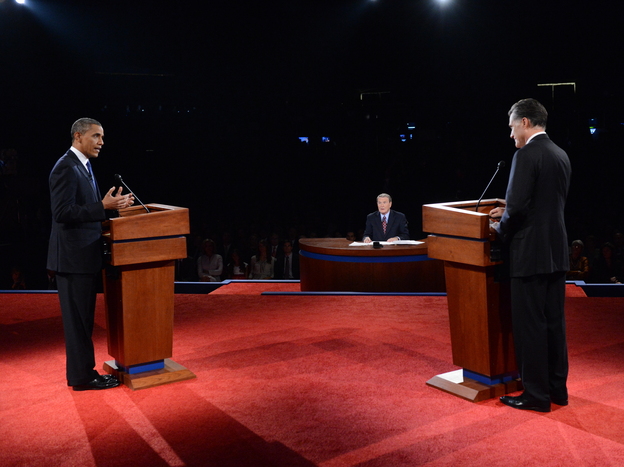
The first Presidential debate takes places tonight. Governor Romney and President Obama have been practicing hard for it. The political pundits have been discussing the importance of this long-awaited confrontation between the two opponents and opining about each candidate’s strengths and weaknesses and what each one has to do to “win” the debate.
Viewers at home will be watching to see how the two men comport themselves, and how they interact with each other and with the moderator, former PBS News Hour anchor Jim Lehrer. We’re told that the format will be different from that of previous debates, but regardless of the changes, it will still not be a real debate.
Nevertheless, I hope the moderator will ask questions that draw out the two candidates in a way that enables onlookers to see the differences in their views on key issues. Mr. Romney will surely be attacking the President on the economy and jobs. The President will be making the case that “we’re moving in the right direction,” and that he has a better plan for moving forward, and pressing his opponent for specifies on his plans, specifics that have been missing to date.
As I wrote in an earlier
post, the President has one great advantage in this debate: the truth! Because Mr. Romney has been flip-flopping all over the place and consistently misrepresenting the facts, it will be much more difficult for him to avoid being challenged on almost anything he says. It will be interesting to see how the President exploits his opponent’s inconsistencies.
There have been rumors that Romney will come well stocked with memorized “zingers,” and he will be inserting them cleverly and seemingly spontaneously. But as much as the media reps like to focus, disproportionally in my view, on these kinds of sound bites, I don’t think I’m alone in my feeling that what is more important is people’s overall impression of the character, personal values, and goals of the two candidates.
Tonight they will have to talk to each other, not about each other. Despite the limitations of the format, as we listen to their exchange, we shall have an opportunity to compare and contrast them apart from their attack ads and superPAC commercials. At the end of the debate the spin-doctors and supporters of each candidate will be claiming victory for their man.
But you and I don’t need anyone else to tell us what we’ve seen and heard. We can decide for ourselves which one seems more “presidential,” or more confident, or more in command of the facts, and we will make up our own minds, if we haven’t already, which of these two very different individuals we are more willing to entrust with the leadership of our nation for the next four years.
For me that decision has everything to do with the personal integrity of the candidates, as reflected in the degree of consistency between their rhetoric and their record, between their stated positions and their personal practices, between their public affirmations and their privately expressed attitudes.
I hope the debates will help us to make that assessment.








